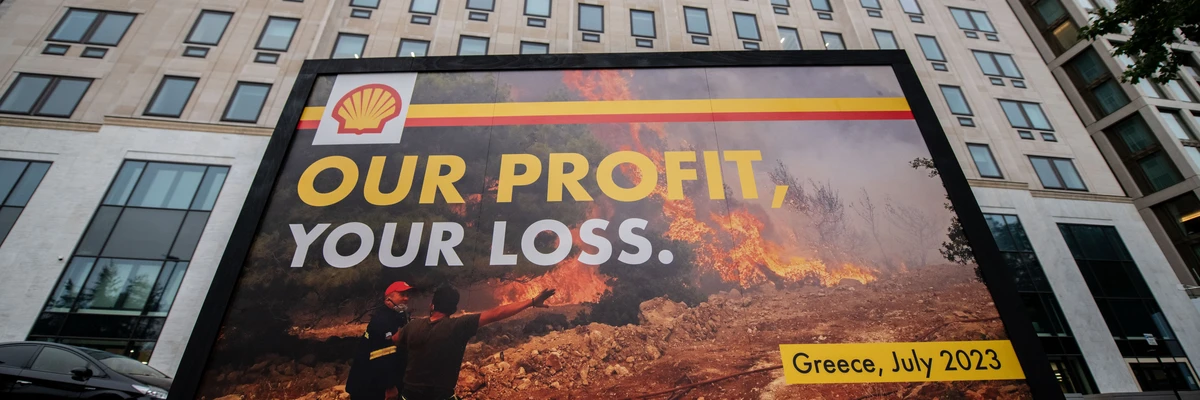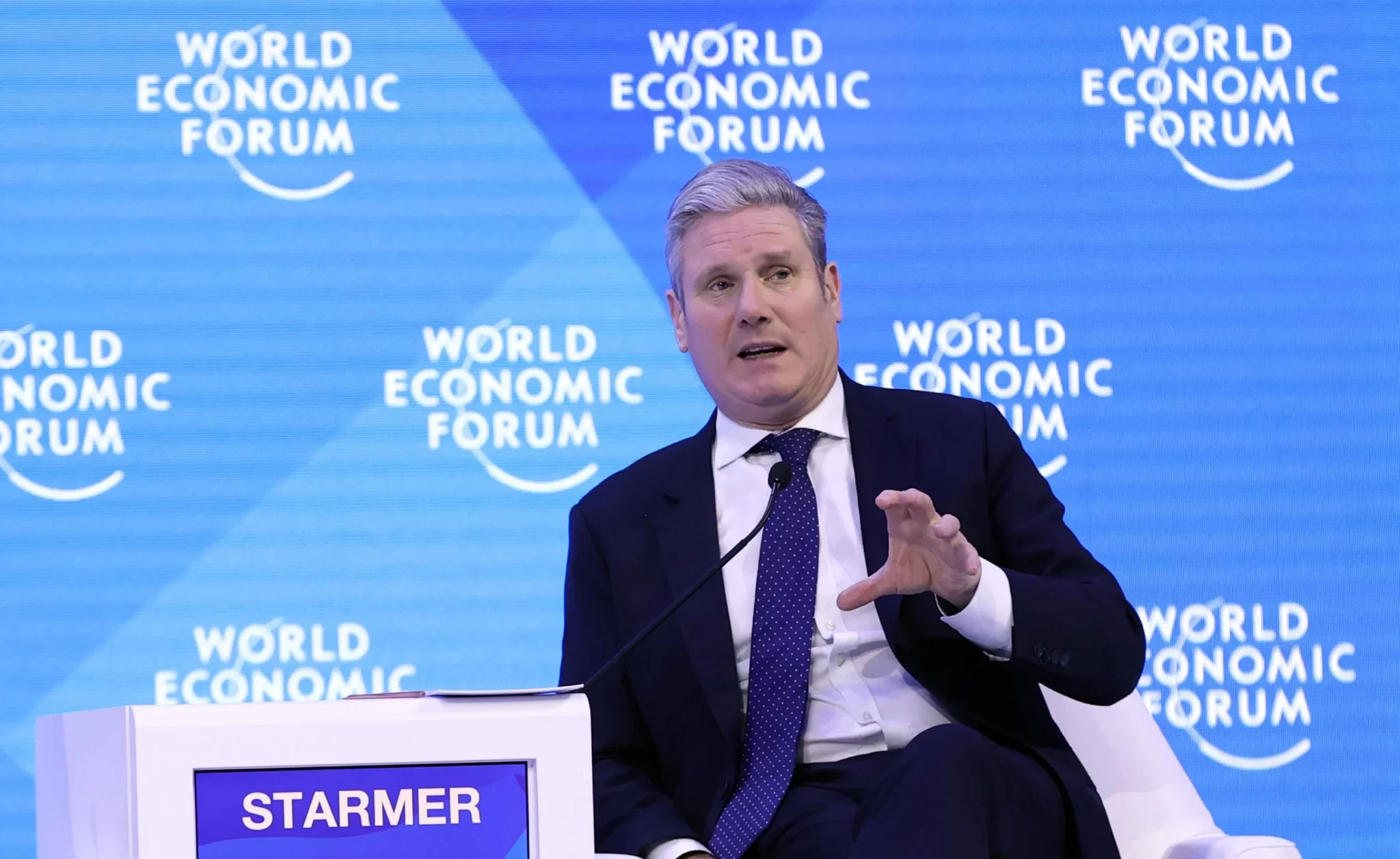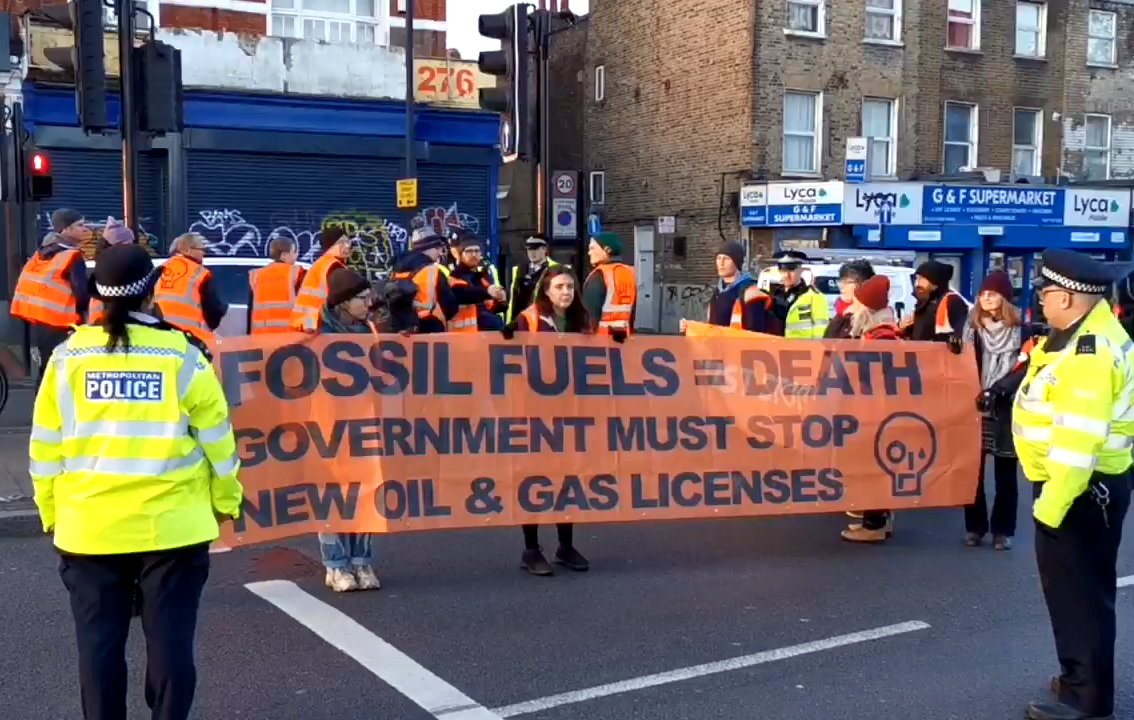As Planet Burns, Shell Reports $5 Billion in Profits and Plans to Ramp Up Fossil Fuels
Original article by JAKE JOHNSON republished from Common Dreams under Creative Commons (CC BY-NC-ND 3.0).

“Every house burnt to the ground, every town forced to evacuate, every ecosystem lost to a wildfire is a necessary consequence of a business model like Shell’s.”
With much of the world reeling from record-shattering heat and devastating wildfires, the London-based oil giant Shell is poised to ramp up its investments in planet-warming fossil fuels after ditching its plan to cut oil production.
An analysis released Thursday by the rights group Global Witness estimates that Shell’s investments in oil and gas projects are set to surge to around $14.5 billion this year, a 10% increase over 2022. The company is expected to spend far less on what it defines as “renewables and energy solutions.”
“Fossil fuels are the number one cause of climate breakdown, which is stoking extreme heatwaves, forest fires, and drought,” said Jonathan Noronha-Gant, a senior campaigner at Global Witness. “Every house burnt to the ground, every town forced to evacuate, every ecosystem lost to a wildfire is a necessary consequence of a business model like Shell’s, which prioritizes short-term cash grabs over the safety and survivability of our societies.”
The new analysis came as Shell reported $5.1 billion in second-quarter profits, a major decline compared to the company’s record-setting $11.5 billion in profits during the same period last year. Despite the profit dip, which Shell blamed on falling oil and gas prices, the company announced a 15% quarterly dividend increase and $3 billion in stock buybacks.
“CEO Wael Sawan’s fossil fuel direction continues to be solely aimed at profit for shareholders,” Nine de Pater, a campaigner with Friends of the Earth Netherlands, said in a statement. “This is immoral and completely irresponsible. We are seeing the impact of the climate crisis around the world this summer: the wildfires in Greece and heat records in southern Europe, Algeria, and India, among others, and the floods in Italy and Afghanistan.”
“Shell’s profits clearly show that the company chooses profits over human lives,” she added.
Shell, which has known about the climate impacts of burning fossil fuels since the 1970s, announced last month that it intends to boost gas production in the coming years while abandoning its plan to reduce oil production by up to 2% per year.
In an interview weeks after the announcement, Sawan claimed it would be “dangerous and irresponsible” to curb oil and gas production even as scientists say that’s exactly what’s needed to avert catastrophic warming.
Global Witness recently estimated that Shell’s reversal on oil production could generate an average of “29 million tonnes of extra carbon per year, almost as much as Denmark emits annually.”
“By 2030,” the group added, “Shell’s extra estimated emissions would be as much as Spain—one of Europe’s largest polluters—produces in one year.”
Original article by JAKE JOHNSON republished from Common Dreams under Creative Commons (CC BY-NC-ND 3.0).



